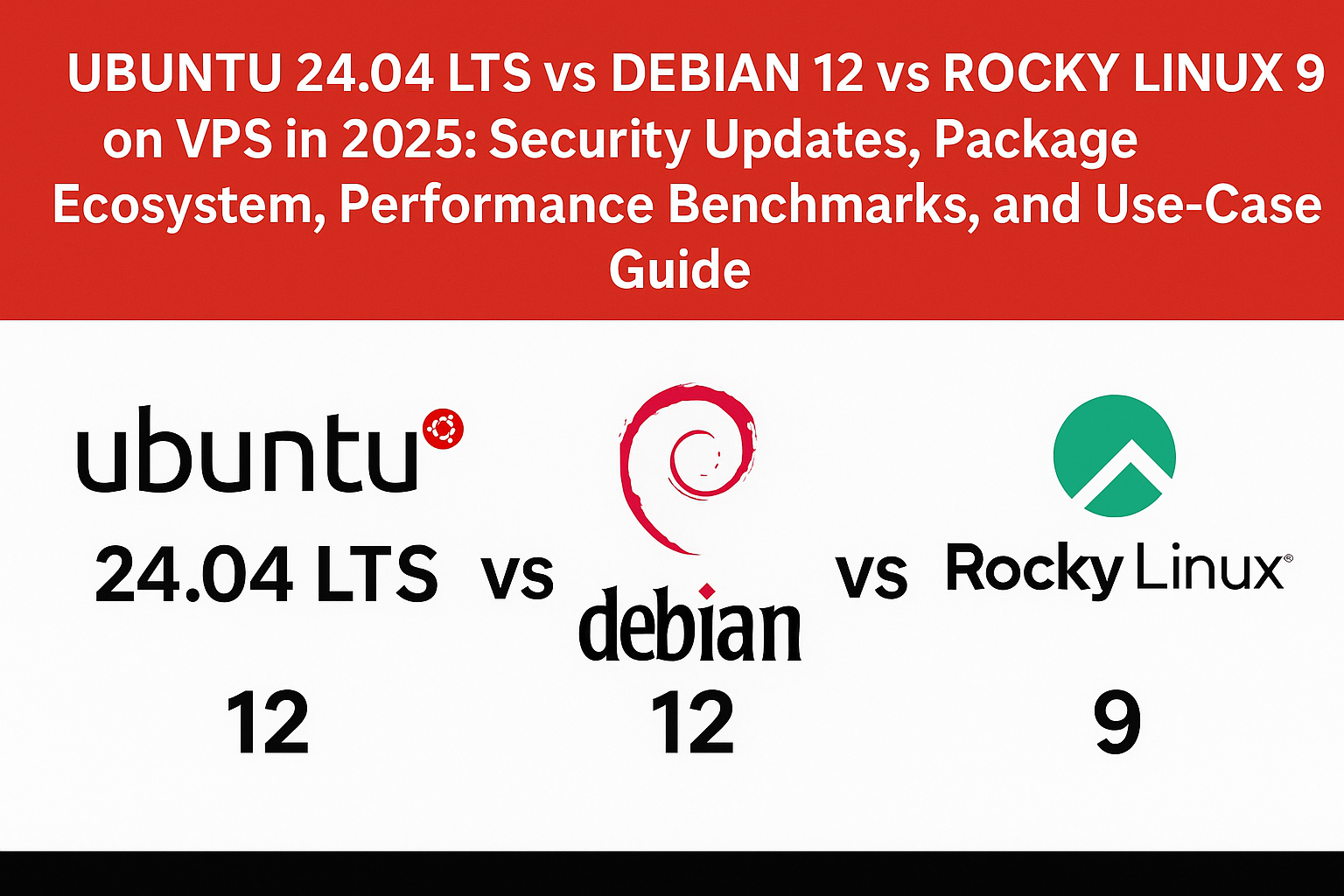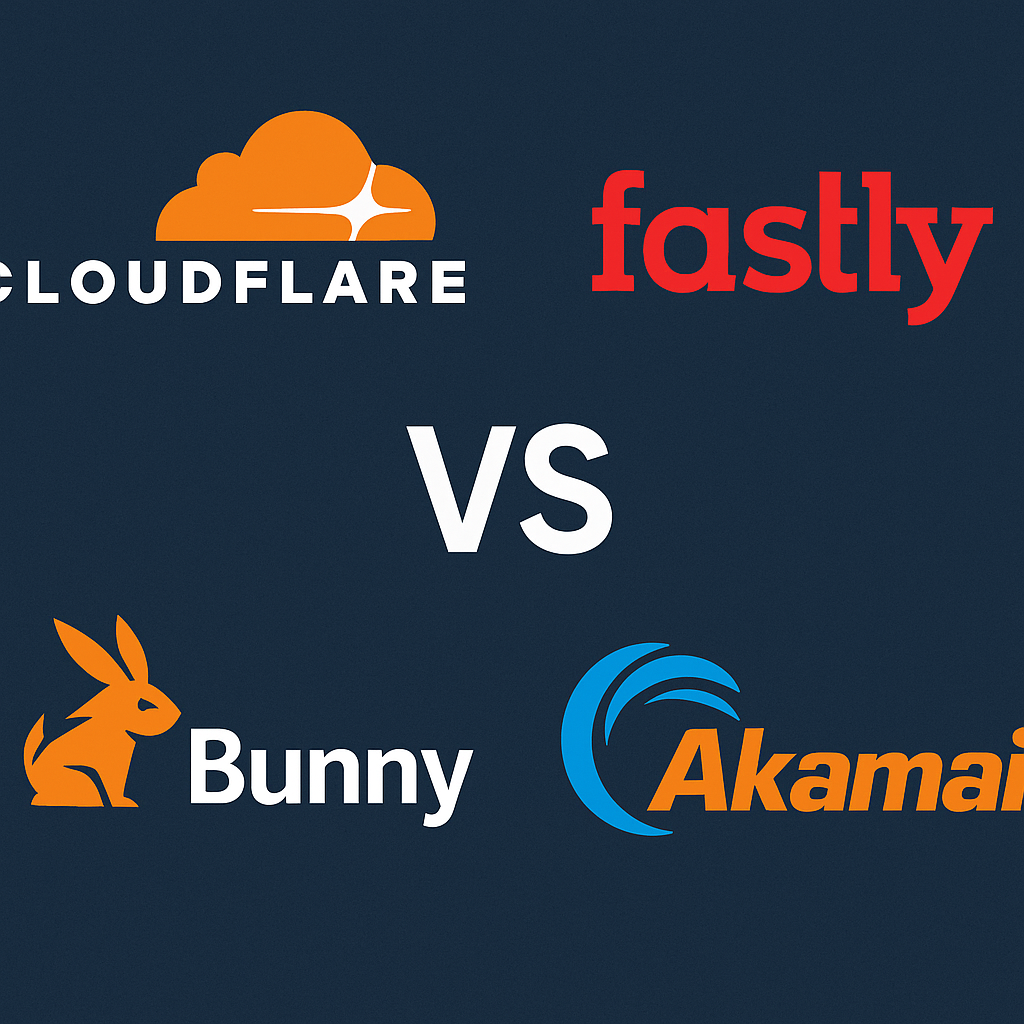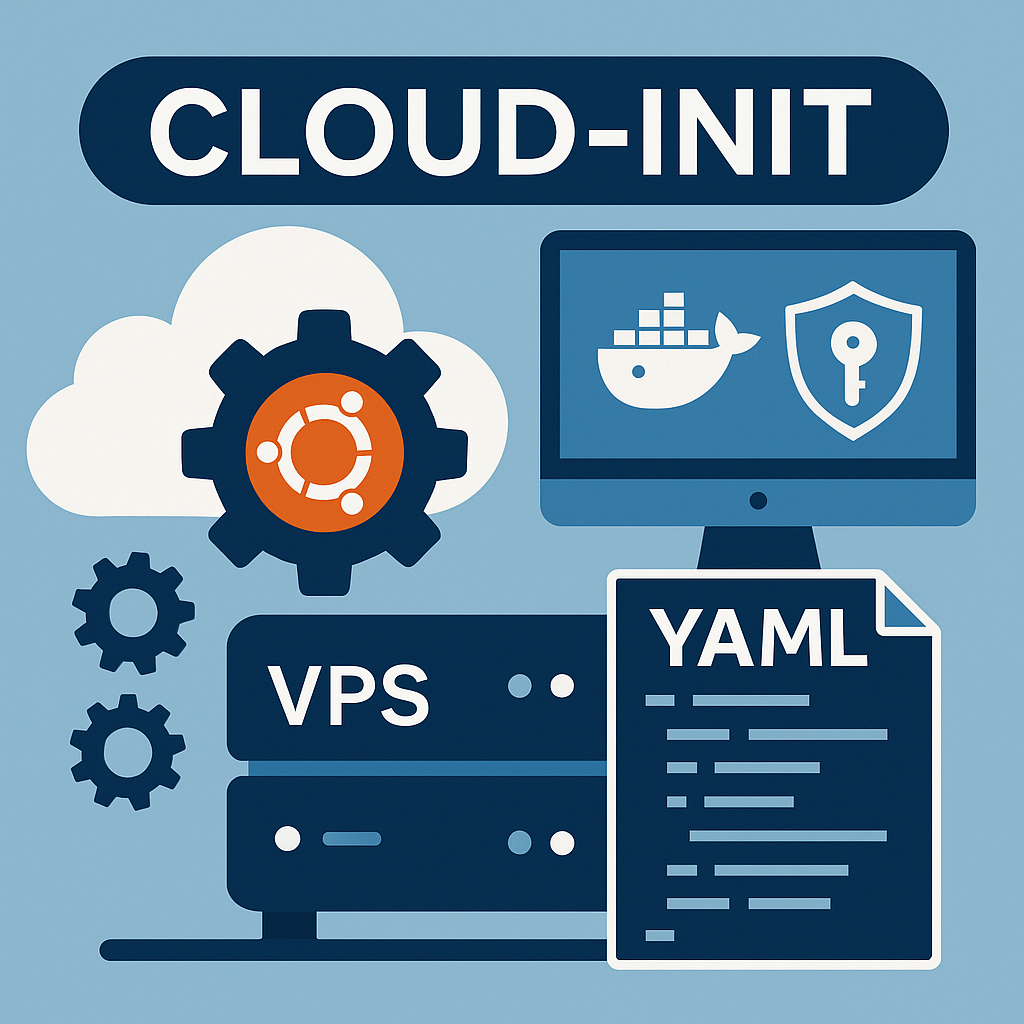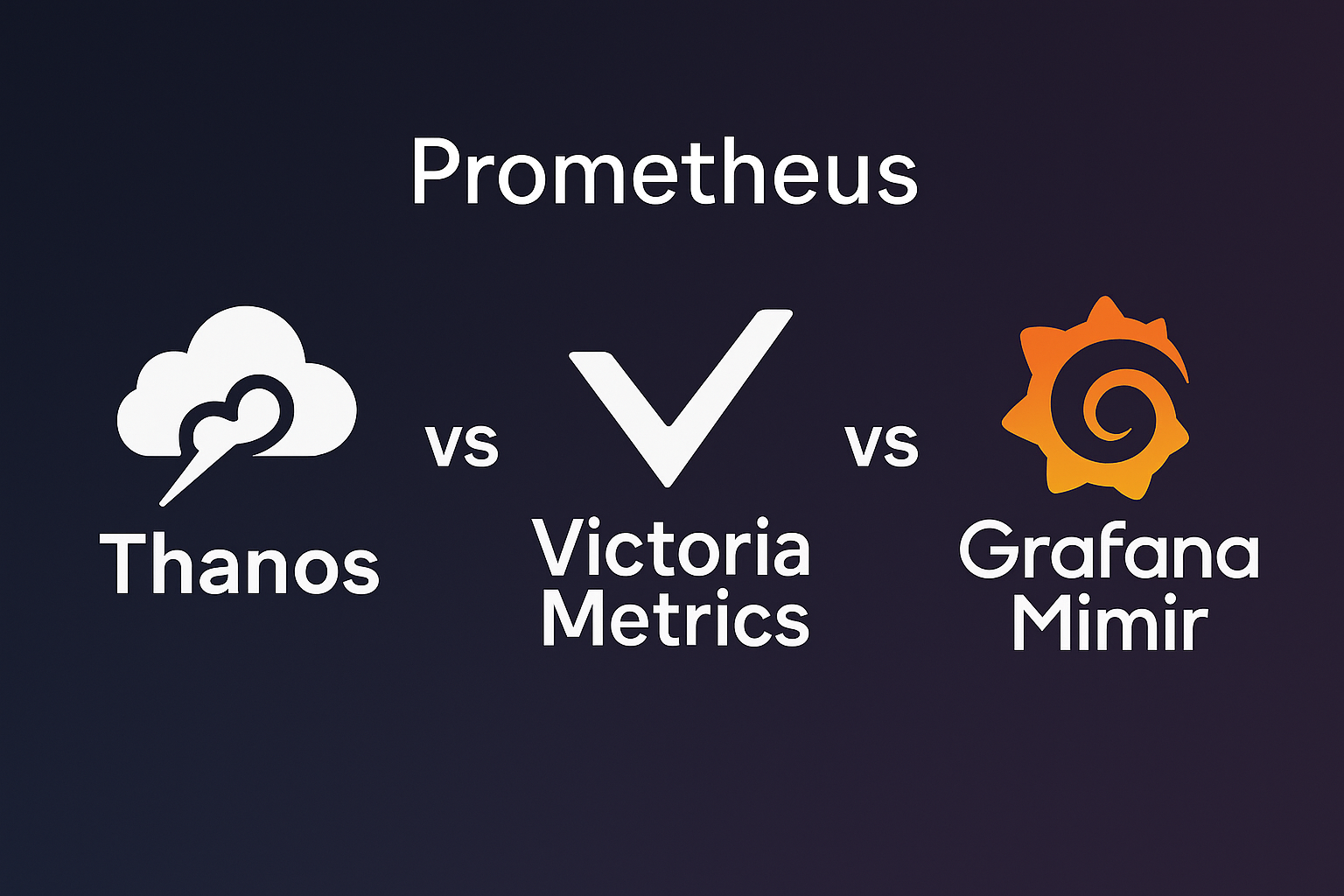Ubuntu 24.04 LTS vs Debian 12 vs Rocky Linux 9 on VPS in 2025: Security Updates, Package Ecosystem, Performance Benchmarks, and Use‑Case Guide

Choosing the right Linux distribution for your VPS deployment can significantly impact your system’s security, performance, and maintenance overhead. In 2025, three distributions stand out as enterprise-grade choices: Ubuntu 24.04 LTS, Debian 12, and Rocky Linux 9. Each offers distinct advantages in terms of security update policies, package management, and performance characteristics.
This comprehensive comparison will help you make an informed decision based on your specific workload requirements, security posture, and operational preferences.
Security Update Lifecycle and Support
Ubuntu 24.04 LTS Security Model
Ubuntu 24.04 LTS provides 5 years of standard support until April 2029, with an additional 5 years of Extended Security Maintenance (ESM) available. Canonical delivers security patches through multiple channels:
- Main repository: Critical security updates within 24-48 hours
- Universe repository: Community-maintained packages with variable response times
- Livepatch service: Kernel hotfixes without reboots for critical vulnerabilities
The Ubuntu Pro tier extends coverage to over 30,000 packages, making it suitable for compliance-heavy environments.
Debian 12 Stable Security Approach
Debian 12 follows a conservative security model with approximately 3 years of active support and 2 additional years of Long Term Support (LTS). The Debian Security Team maintains strict criteria for backporting fixes:
- Security-only updates: No feature additions, only vulnerability patches
- Rigorous testing: All updates undergo extensive validation
- Minimal attack surface: Default installations include only essential packages
Rocky Linux 9 Enterprise Security
Rocky Linux 9 inherits Red Hat Enterprise Linux’s security model, providing 10 years of support until 2032. Key security features include:
- SELinux integration: Mandatory Access Control enabled by default
- FIPS 140-2 compliance: Cryptographic modules for government workloads
- Automated patching: DNF Automatic for unattended security updates
Package Ecosystem and Software Availability
Ubuntu: Developer-Focused Ecosystem
Ubuntu’s package ecosystem prioritizes developer productivity and modern software stacks:
- Snap packages: Containerized applications with automatic updates
- PPAs (Personal Package Archives): Third-party repositories for cutting-edge software
- Cloud-native tools: Native support for Docker, Kubernetes, and container orchestration
- AI/ML frameworks: Optimized packages for TensorFlow, PyTorch, and CUDA
The extensive PPA ecosystem makes Ubuntu particularly suitable for development environments and modern application deployments.
Debian: Universal Operating System
Debian offers one of the largest package repositories with over 60,000 packages:
- Stable, Testing, Unstable branches: Choose your stability vs. freshness balance
- Multi-architecture support: Excellent ARM compatibility
- Backports repository: Newer software versions for stable releases
- Reproducible builds: Enhanced security through build verification
Rocky Linux: Enterprise Application Focus
Rocky Linux emphasizes enterprise software compatibility and stability:
- EPEL repository: Extra Packages for Enterprise Linux
- RPM Fusion: Multimedia and proprietary software packages
- Enterprise software certification: Compatibility with Oracle, SAP, and IBM solutions
- Container platforms: Podman and Buildah as Docker alternatives
Performance Benchmarks and Resource Efficiency
Memory and CPU Utilization
Based on standardized benchmarks on identical 4 vCPU, 8GB RAM VPS instances:
- Debian 12: Lowest idle memory usage (~280MB), minimal background processes
- Rocky Linux 9: Moderate resource usage (~420MB), optimized for server workloads
- Ubuntu 24.04: Highest resource usage (~520MB) due to additional services and snap packages
Container and Virtualization Performance
For containerized workloads, performance varies based on kernel optimizations and default configurations:
- Rocky Linux 9: Superior container performance with Podman and cgroup v2 optimizations
- Ubuntu 24.04: Strong Docker integration and Kubernetes deployment support
- Debian 12: Consistent performance across various container runtimes
Use-Case Recommendations
Choose Ubuntu 24.04 LTS For:
- Development environments: Rapid prototyping and modern toolchains
- Cloud-native applications: Microservices and container orchestration
- AI/ML workloads: GPU acceleration and framework optimization
- Rapid deployment cycles: When you need latest software versions quickly
Ubuntu excels on Onidel VPS in Singapore for APAC-focused development teams requiring low-latency access to modern development tools.
Choose Debian 12 For:
- Mission-critical systems: Rock-solid stability and predictable behavior
- Custom appliances: Minimal base system for specialized applications
- Long-term deployments: Systems requiring minimal maintenance intervention
- Privacy-focused environments: No telemetry or commercial tracking
Choose Rocky Linux 9 For:
- Enterprise applications: Commercial software requiring RHEL compatibility
- Compliance environments: FIPS 140-2, Common Criteria certifications
- High-security workloads: SELinux mandatory access controls
- Traditional server roles: Web servers, databases, application servers
Security Hardening and Best Practices
Regardless of your distribution choice, implement these security measures:
- Enable automatic security updates: Configure unattended-upgrades (Ubuntu/Debian) or dnf-automatic (Rocky Linux)
- Implement intrusion prevention: Deploy Fail2ban or CrowdSec for attack mitigation
- Configure secure SSH access: Use key-based authentication and disable password login
- Enable network optimizations: Configure BBR congestion control for improved performance
Conclusion
The choice between Ubuntu 24.04 LTS, Debian 12, and Rocky Linux 9 depends on your specific requirements for security, performance, and package availability. Ubuntu 24.04 LTS excels in development and cloud-native environments, Debian 12 provides unmatched stability for production systems, while Rocky Linux 9 offers enterprise-grade security and RHEL compatibility.
For optimal performance, consider deploying your chosen distribution on high-performance infrastructure with AMD EPYC processors and NVMe storage. Modern VPS platforms supporting advanced features like AMD-SEV encryption and automated backup solutions can further enhance your deployment’s security and reliability.
Evaluate your specific workload requirements, security compliance needs, and operational preferences to make the optimal choice for your 2025 VPS deployment.
Related Articles

Top CDN Providers for VPS in 2025: Complete Performance Analysis of Cloudflare vs Fastly vs Bunny vs Akamai

Master Cloud-Init on Ubuntu 24.04: 30 Production-Ready Templates for Docker, SSH Security, and VPS Automation
